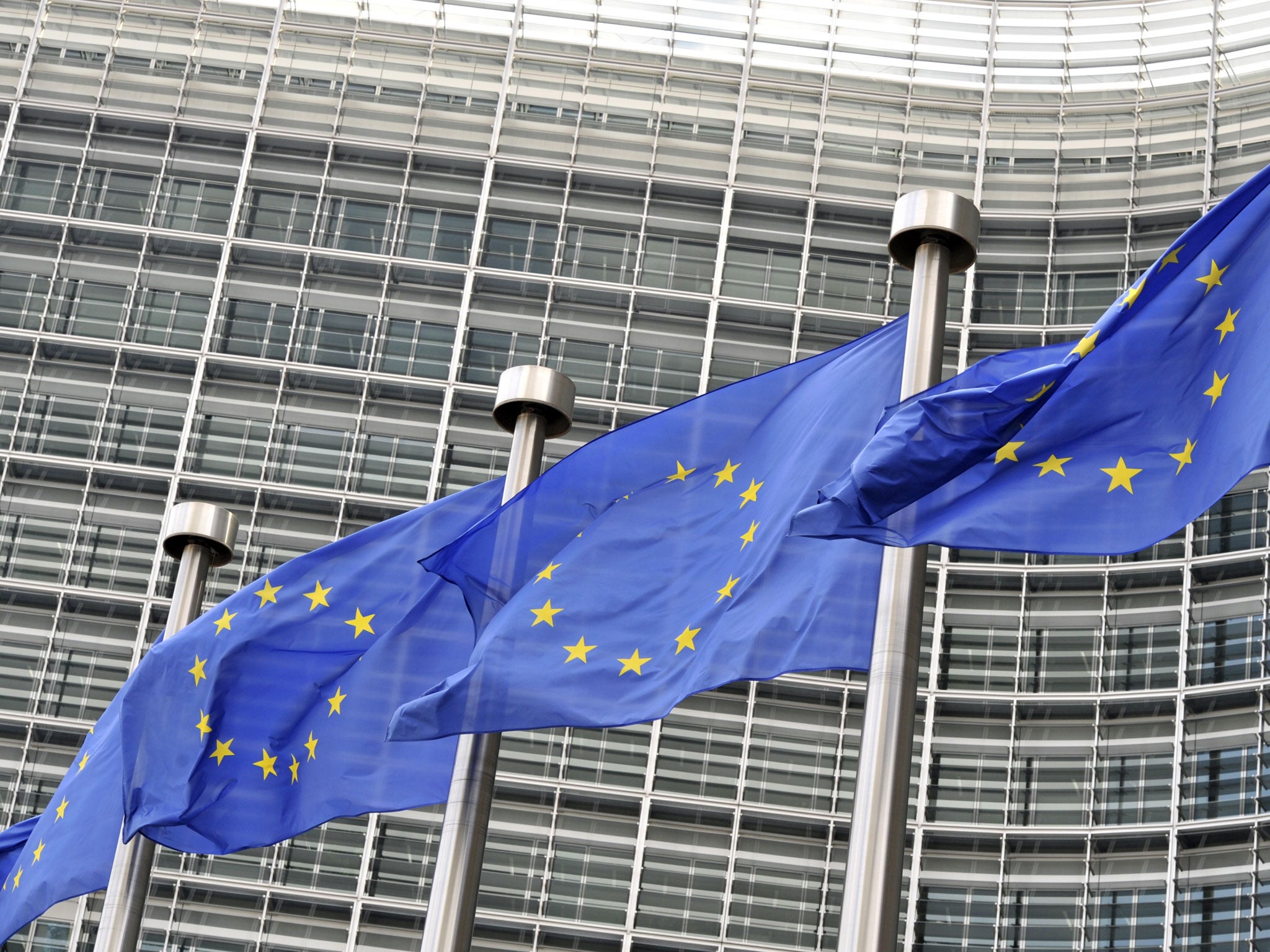British sovereignty ‘at risk’ from EU-US trade deal: UK in danger of surrendering judicial independence to multinational corporations, warn activists
Commons motion highlights growing disquiet, as more than 200 groups add voices to protest

Britain’s freedom to tackle climate change, protect consumers or guarantee a publicly run NHS could be jeopardised by a trade deal being negotiated between Europe and the US, MPs and pressure groups have warned.
Under a draft plan supported by the European Commission, multinational firms would be given wide-ranging powers to sue EU governments that adopt public policies deemed to “discriminate” against free trade.
Campaigners warn that similar trade deals elsewhere in the world have resulted in countries being sued for adopting policies in the public good – such as anti-smoking measures – because they were deemed to penalise foreign investors. These include Australia which is currently being sued by Philip Morris for introducing plain cigarette packaging, and Canada, which is being sued by US drugs firm Eli Lilly for revoking patents on drugs on the grounds that their benefits may have been overstated.
Zac Goldsmith, the Tory MP, told The Independent: “It is hard to see how this won’t seriously jeopardise the sovereignty of the UK Government and its legal system. Disputes between companies and legislators should always be dealt with by British courts.”
More than 200 organisations across the EU, including the TUC, Greenpeace and War on Want, have written a joint letter to European and American trade negotiators demanding the removal of the investor-state dispute settlement (ISDS) process from the final treaty.
“ISDS is a one-way street by which corporations can challenge government policies, but neither governments nor individuals are granted comparable rights to hold corporations accountable,” they wrote.
Campaign groups in Britain are due to put their concerns to the Department of Business on Wednesday, while an Early Day Motion in Parliament, signed by MPs from all parties, calls for the trade talks to be frozen until the issue is resolved.
Tonight, the European Commission and the Government insisted the deal would include safeguards to prevent misuse by corporations, thus guaranteeing the right of EU governments to “pursue legitimate public policy objectives such as social, environmental, security, public health and safety” without the risk of being sued.
ISDS has been a long-established principle of multilateral trade deals between countries and is a process designed to ensure investors are not discriminated against by governments or biased judicial systems. It allows companies who believe they have been unfairly treated to take states to a neutral arbitration panel that can award compensation for loss of earnings.
But in recent years, campaigners claim, it has been used by large multinational companies to sue governments acting in the public interest. The Slovak Republic was forced to pay $22m (£13.4m) damages after the government reversed the liberalisation of its health-insurance market.
Campaigners say the arbitration panels are unaccountable and are not likely to assess issues of national interest when making decisions.
Green Party MP Caroline Lucas, who tabled the parliamentary motion, said the move would “overturn decades of laws and regulations formed through democratic processes on both sides of the Atlantic”.
Former Labour minister John Healey, who chairs the parliamentary group on EU-US trade and investment, said: “It is not clear ISDSs are justified at all when the agreement will be struck between countries with some of the most advanced and stable legal systems in the world.”
Frances O’Grady, TUC general secretary, said: “These clauses could thwart attempts by a future government to bring our health service back towards public ownership.”
Charlie Kronick, senior climate adviser at Greenpeace, said the group feared ISDS provisions could be used to prevent the EU from restricting imports of US diesel made from polluting tar sands in Canada.
But EU trade spokesman John Clancy said the fears of campaigners were entirely misplaced. “The sad irony is that the many critics of investment protection and in particular ISDS are actually arguing for us to maintain the status quo which is at the heart of the problem.” He added: “The EU wants to close down such loopholes in a future EU-US deal by spelling out what is and is not possible, improving transparency and creating modern, state-of-the art investment arrangements.”
A Department for Business spokesperson said the UK already has more than 90 ISDS agreements with other countries and added: “Investment protection provisions do not limit the ability of states to make or repeal any law or regulation.”
The key issue: Investor-state dispute settlements
ISDS is a provision often found in trade and investment agreements that allows investors to bring legal proceedings against a foreign government that is party to the agreement.
If the government is found to be in breach of its obligations, the harmed investor can receive monetary compensation.
Such provisions have proved controversial, though. In 2011 Philip Morris sued the Australian government for restricting logos, branding, colours and promotional text on tobacco packets. The company claims the move breaches Australia’s bilateral investment treaty with Hong Kong. The case is yet to be resolved.
Join our commenting forum
Join thought-provoking conversations, follow other Independent readers and see their replies
Comments
Bookmark popover
Removed from bookmarks